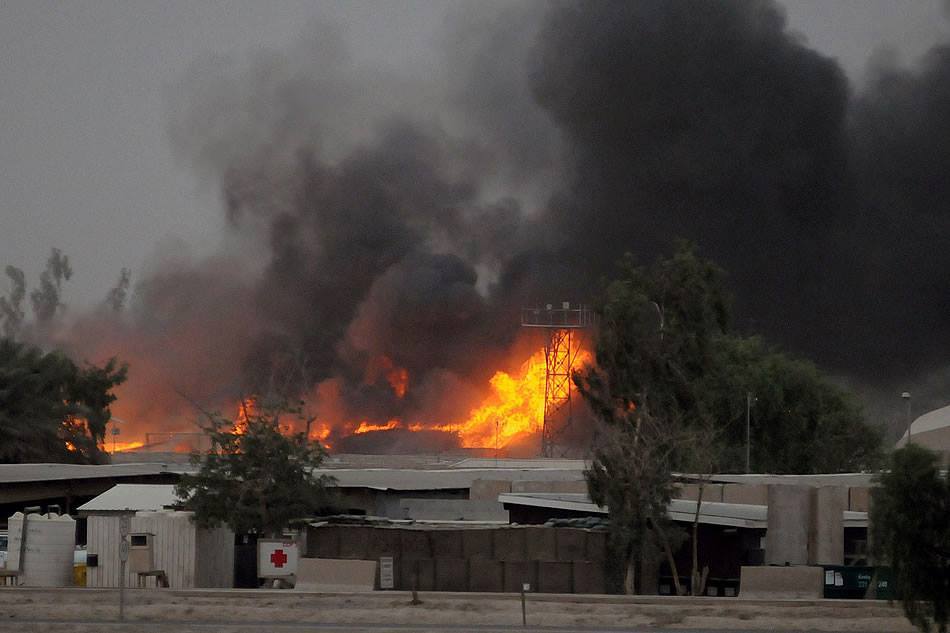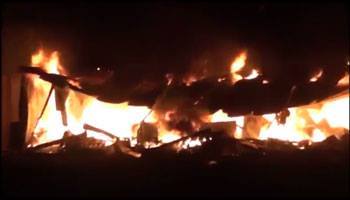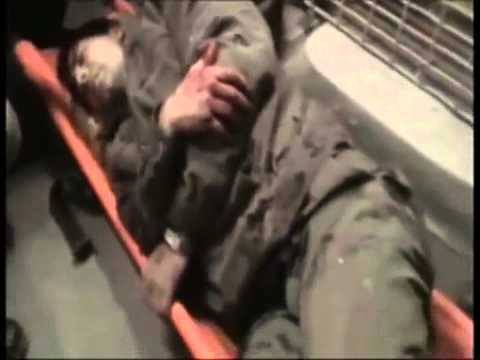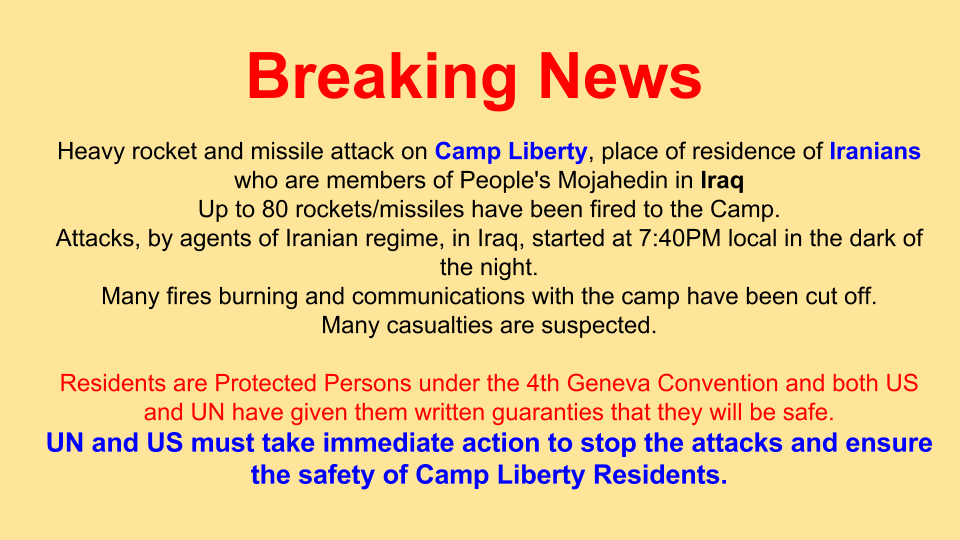Some back story events leading up to the broken relationship between the Obama White House and Israel.
Spy vs. Spy, the Fraying U.S Israel Ties
WSJ: The U.S. closely monitored Israel’s military bases and eavesdropped on secret communications in 2012, fearing its longtime ally might try to carry out a strike on Fordow, Iran’s most heavily fortified nuclear facility.
Nerves frayed at the White House after senior officials learned Israeli aircraft had flown in and out of Iran in what some believed was a dry run for a commando raid on the site. Worried that Israel might ignite a regional war, the White House sent a second aircraft carrier to the region and readied attack aircraft, a senior U.S. official said, “in case all hell broke loose.”
The two countries, nursing a mutual distrust, each had something to hide. U.S. officials hoped to restrain Israel long enough to advance negotiations on a nuclear deal with Iran that the U.S. had launched in secret. U.S. officials saw Israel’s strike preparations as an attempt to usurp American foreign policy.
Instead of talking to each other, the allies kept their intentions secret. To figure out what they weren’t being told, they turned to their spy agencies to fill gaps. They employed deception, not only against Iran, but against each other. After working in concert for nearly a decade to keep Iran from an atomic bomb, the U.S. and Israel split over the best means: diplomacy, covert action or military strikes.
Personal strains between President Barack Obama and Israeli Prime Minister Benjamin Netanyahu erupted at their first Oval Office meeting in 2009, and an accumulation of grievances in the years since plunged relations between the two countries into crisis.
This Wall Street Journal account of the souring of U.S.-Israel relations over Iran is based on interviews with nearly two dozen current and former senior U.S. and Israeli officials.
U.S. and Israeli officials say they want to rebuild trust but acknowledge it won’t be easy. Mr. Netanyahu reserves the right to continue covert action against Iran’s nuclear program, said current and former Israeli officials, which could put the spy services of the U.S. and Israel on a collision course.
A shaky start
Messrs. Obama and Netanyahu shared common ground on Iran when they first met in 2007. Mr. Netanyahu, then the leader of Israel’s opposition party, the right-wing Likud, discussed with Mr. Obama, a Democratic senator, how to discourage international investment in Iran’s energy sector. Afterward, Mr. Obama introduced legislation to that end.
Suspicions grew during the 2008 presidential race after Mr. Netanyahu spoke with some congressional Republicans who described Mr. Obama as pro-Arab, Israeli officials said. The content of the conversations later found its way back to the White House, senior Obama administration officials said.
Soon after taking office in January 2009, Mr. Obama took steps to allay Israeli concerns, including instructing the Pentagon to develop military options against Iran’s Fordow facility, which was built into a mountain. The president also embraced an existing campaign of covert action against Iran, expanding cooperation between the Central Intelligence Agency and Mossad, the Israeli spy agency.
Mossad leaders compared the covert campaign to a 10-floor building: The higher the floor, they said, the more invasive the operation. CIA and Mossad worked together on operations on the lower floors. But the Americans made clear they had no interest in moving higher—Israeli proposals to bring down Iran’s financial system, for example, or even its regime.
Some covert operations were run unilaterally by Mossad, such as the assassination of Iranian nuclear scientists, according to U.S. officials.
The first Oval Office meeting between Messrs. Obama and Netanyahu, in May 2009—weeks after Mr. Netanyahu became prime minister—was difficult for both sides. After the meeting, Mr. Obama’s aides called Ron Dermer, Mr. Netanyahu’s adviser, to coordinate their statements. Mr. Dermer told them it was too late; Mr. Netanyahu was already briefing reporters. “We kind of looked at each other and said, ‘I guess we’re not coordinating our messages,’ ” said Tommy Vietor, a former administration official who was there.
In 2010, the risk of covert action became clear. A computer virus dubbed Stuxnet, deployed jointly by the U.S. and Israel to destroy Iranian centrifuges used to process uranium, had inadvertently spread across the Internet. The Israelis wanted to launch cyberattacks against a range of Iranian institutions, according to U.S. officials. But the breach made Mr. Obama more cautious, officials said, for fear of triggering Iranian retaliation, or damaging the global economy if a virus spread uncontrollably.
Israel questioned whether its covert operations were enough, said aides to Mr. Netanyahu. Stuxnet had only temporarily slowed Tehran’s progress. “Cyber and other covert operations had their inherent limitations,” a senior Israeli official said, “and we reached those limitations.”
Mr. Netanyahu pivoted toward a military strike, raising anxiety levels in the White House.
The U.S. Air Force analyzed the arms and aircraft needed to destroy Iran’s nuclear facilities and concluded Israel didn’t have the right equipment. The U.S. shared the findings, in part, to steer the Israelis from a military strike.
The Israelis weren’t persuaded and briefed the U.S. on an attack plan: Cargo planes would land in Iran with Israeli commandos on board who would “blow the doors, and go in through the porch entrance” of Fordow, a senior U.S. official said. The Israelis planned to sabotage the nuclear facility from inside.
Pentagon officials thought it was a suicide mission. They pressed the Israelis to give the U.S. advance warning. The Israelis were noncommittal.
“Whether this was all an effort to try to pressure Obama, or whether Israel was really getting close to a decision, I don’t know,” said Michéle Flournoy, who at the time was undersecretary of defense for policy.
Mr. Obama, meanwhile, was moving toward diplomacy. In December 2011, the White House secretly used then-Sen. John Kerry to sound out Omani leaders about opening a back channel to the Iranians.
At the same time, the White House pressed the Israelis to scale back their assassination campaign and turned down their requests for more aggressive covert measures, U.S. officials said.
The president spoke publicly about his willingness to use force as a last resort to prevent Iran from getting a nuclear weapon—“I don’t bluff,” Mr. Obama said in March 2012—but some of Mr. Netanyahu’s advisers weren’t convinced.
In early 2012, U.S. spy agencies told the White House about a flurry of meetings that Mr. Netanyahu convened with top security advisers. The meetings covered everything from mission logistics to the political implications of a military strike, Israeli officials said.
Warning signs
U.S. spy agencies stepped up satellite surveillance of Israeli aircraft movements. They detected when Israeli pilots were put on alert and identified moonless nights, which would give the Israelis better cover for an attack. They watched the Israelis practice strike missions and learned they were probing Iran’s air defenses, looking for ways to fly in undetected, U.S. officials said.
New intelligence poured in every day, much of it fragmentary or so highly classified that few U.S. officials had a complete picture. Officials now say many jumped to the mistaken conclusion that the Israelis had made a dry run.
At the time, concern and confusion over Israel’s intentions added to the sense of urgency inside the White House for a diplomatic solution.
The White House decided to keep Mr. Netanyahu in the dark about the secret Iran talks, believing he would leak word to sabotage them. There was little goodwill for Mr. Netanyahu among Mr. Obama’s aides who perceived the prime minister as supportive of Republican challenger Mitt Romney in the 2012 campaign.
Mr. Netanyahu would get briefed on the talks, White House officials concluded, only if it looked like a deal could be reached.
The first secret meeting between U.S. and Iranian negotiators, held in July 2012, was a bust. But “nobody was willing to throw it overboard by greenlighting Israeli strikes just when the process was getting started,” a former senior Obama administration official said.
Israeli officials approached their U.S. counterparts over the summer about obtaining military hardware useful for a strike, U.S. officials said.
At the top of the list were V-22 Ospreys, aircraft that take off and land like helicopters but fly like fixed-wing planes. Ospreys don’t need runways, making them ideal for dropping commandos behind enemy lines.
The Israelis also sounded out officials about obtaining the Massive Ordnance Penetrator, the U.S. military’s 30,000-pound bunker-busting bomb, which was designed to destroy Fordow.
Mr. Netanyahu wanted “somebody in the administration to show acquiescence, if not approval” for a military strike, said Gary Samore, who served for four years as Mr. Obama’s White House coordinator for arms control and weapons of mass destruction. “The message from the Obama administration was: ‘We think this is a big mistake.’ ”
White House officials decided not to provide the equipment.
Messrs. Obama and Netanyahu spoke in September 2012, and Mr. Obama emerged convinced Israel wouldn’t strike on the eve of the U.S. presidential election.
By the following spring, senior U.S. officials concluded the Israelis weren’t serious about a commando raid on Fordow and may have been bluffing. When the U.S. offered to sell the Ospreys, Israel said it didn’t have the money.
Former Israeli Defense Minister Ehud Barak, who championed a strike, said Mr. Netanyahu had come close to approving a military operation against Iran. But Israel’s military chiefs and cabinet members were reluctant, according to Israeli officials.
While keeping the Omani talks secret, U.S. officials briefed the Israelis on the parallel international negotiations between Iran and major world powers under way in early 2013. Those talks, which made little headway, were led on the U.S. side by State Department diplomat Wendy Sherman.
Robert Einhorn, at the time an arms control adviser at the State Department, said that during the briefings, Mr. Netanyahu’s advisers wouldn’t say what concessions they could live with. “It made us feel like nothing was going to be good enough for them,” Mr. Einhorn said.
U.S. spy agencies were monitoring Israeli communications to see if the Israelis had caught wind of the secret talks. In September 2013, the U.S. learned the answer.
Yaakov Amidror, Mr. Netanyahu’s national security adviser at the time, had come to Washington in advance of a Sept. 30 meeting between Messrs. Netanyahu and Obama.
On Sept. 27, Mr. Amidror huddled with White House national security adviser Susan Rice in her office when she told him that Mr. Obama was on the phone in a groundbreaking call with Iran’s president, Hassan Rouhani.
Mr. Amidror had his own surprise. During a separate meeting in the Roosevelt Room, he told several of Mr. Obama’s top advisers that Israel had identified the tail numbers of the unmarked U.S. government planes that ferried negotiators to Muscat, Oman, the site of the secret talks, U.S. officials said.
Mr. Amidror, who declined to comment on the White House discussions, said that it was insulting for Obama administration officials to think “they could go to Oman without taking our intelligence capabilities into account.” He called the decision to hide the Iran talks from Israel a big mistake.
U.S. officials said they were getting ready to tell the Israelis about the talks, which advanced only after Mr. Rouhani came to office. During the Sept. 30 meeting with Mr. Netanyahu, the president acknowledged the secret negotiations. The secrecy cemented Israel’s distrust of Mr. Obama’s intentions, Israeli officials said.
Mr. Samore, the former White House official, said he believed it was a mistake to keep Israel in the dark for so long. Mr. Einhorn said: “The lack of early transparency reinforced Israel’s suspicions and had an outsize negative impact on Israeli thinking about the talks.”
Israel pushed for the U.S. to be more open about the Iran negotiations. Ms. Rice, however, pulled back on consultations with her new Israeli counterpart, Yossi Cohen, who took over as Mr. Netanyahu’s national security adviser, according to U.S. and Israeli officials.
In exchanges with the White House, U.S. officials said, Mr. Cohen wouldn’t budge from demanding Iran give up its centrifuges and uranium-enrichment program. Israeli officials said they feared any deviation would be taken by the U.S. as a green light for more concessions.
In one meeting, Mr. Cohen indicated Mr. Netanyahu could accept a deal allowing Iran to keep thousands of centrifuges, U.S. officials said. Soon after, Mr. Cohen called to say he had misspoken. Neither side was prepared to divulge their bottom line.
In November 2013, when the interim agreement was announced, Mr. Samore was in Israel, where, he said, the Israelis “felt blindsided” by the terms. U.S. officials said the details came together so quickly that Ms. Sherman and her team didn’t have enough time to convey them all. Israeli officials said the Americans intentionally withheld information to prevent them from influencing the outcome.
Listening in
As talks began in 2014 on a final accord, U.S. intelligence agencies alerted White House officials that Israelis were spying on the negotiations. Israel denied any espionage against the U.S. Israeli officials said they could learn details, in part, by spying on Iran, an explanation U.S. officials didn’t believe.
Earlier this year, U.S. officials clamped down on what they shared with Israel about the talks after, they allege, Mr. Netanyahu’s aides leaked confidential information about the emerging deal.
When U.S. officials confronted the Israelis over the matter in a meeting, Israel’s then-minister of intelligence said he didn’t disclose anything from Washington’s briefings. The information, the minister said, came from “other means,” according to meeting participants.
Ms. Sherman told Mr. Cohen, Israel’s national security adviser: “You’re putting us in a very difficult position. We understand that you will find out what you can find out by your own means. But how can we tell you every single last thing when we know you’re going to use it against us?” according to U.S. officials who were there.
Mr. Netanyahu turned to congressional Republicans, one of his remaining allies with the power to affect the deal, Israeli officials said, but he couldn’t muster enough votes to block it.
U.S. officials now pledge to work closely with their Israeli counterparts to monitor Iran’s compliance with the international agreement.
But it is unclear how the White House will respond to any covert Israeli actions against Iran’s nuclear program, which current and former Israeli officials said were imperative to safeguard their country.
One clause in the agreement says the major powers will help the Iranians secure their facilities against sabotage. State Department officials said the clause wouldn’t protect Iranian nuclear sites from Israel.
Michael Hayden, a former director of the CIA, said the U.S. and Israel could nonetheless end up at odds.
“If we become aware of any Israeli efforts, do we have a duty to warn Iran?” Mr. Hayden said. “Given the intimacy of the U.S.-Israeli relationship, it’s going to be more complicated than ever.”











